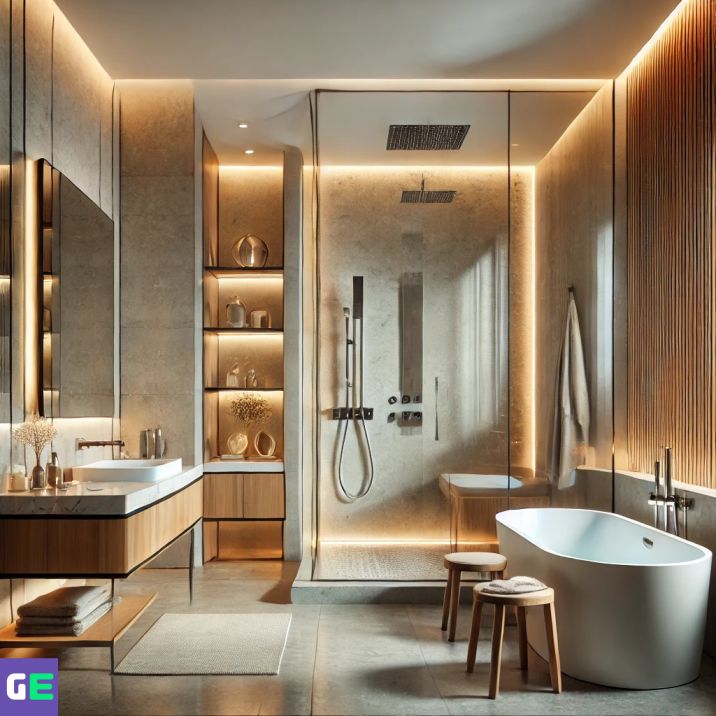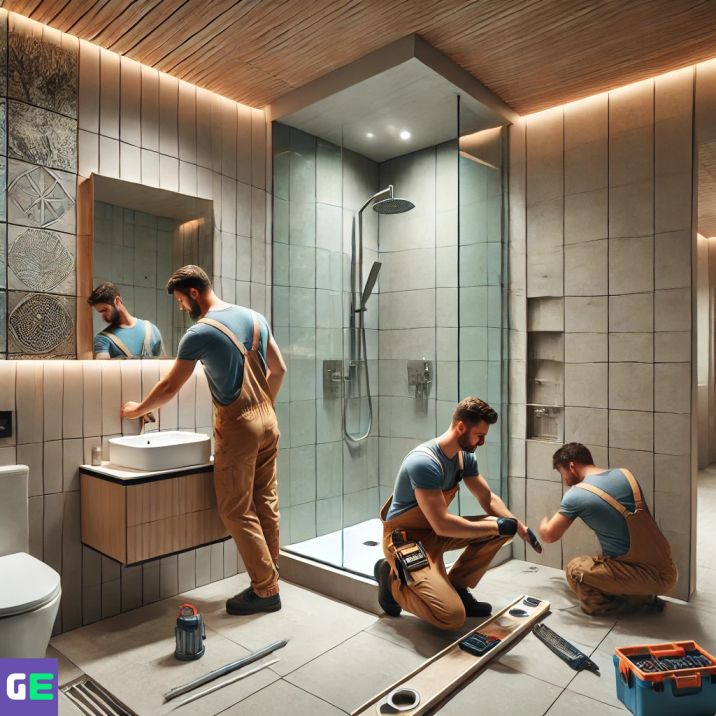Introduction
The luxury real estate market trends in the United States are constantly evolving due to economic shifts, buyer preferences, and technological advancements. As we enter 2025, the luxury housing market is experiencing significant transformations, making it crucial for buyers and sellers to stay informed. Whether you are an investor looking for the next big opportunity, a homebuyer seeking a dream property, or a seller aiming for maximum returns, understanding the latest luxury real estate market trends is essential.
This in-depth guide explores the key trends shaping the market in 2025, insights into buyer and seller strategies, and future predictions for the luxury housing sector.
1. Current State of the U.S. Luxury Real Estate Market
The luxury real estate market trends in the U.S. have been influenced by economic fluctuations, interest rates, and shifts in consumer behavior. In 2024, high-end real estate remained resilient despite market volatility, thanks to strong demand from affluent buyers and foreign investors.
One of the major driving factors in the luxury sector has been the post-pandemic shift in lifestyle preferences. Many high-net-worth individuals (HNWIs) continue to seek properties with larger spaces, resort-style amenities, and enhanced privacy. This has led to increased demand for estates, waterfront properties, and exclusive gated communities.
Additionally, inventory levels in prime locations like New York City, Los Angeles, and Miami have remained tight, causing home prices to stay elevated. However, secondary markets, including Austin, Nashville, and Scottsdale, are emerging as new luxury hotspots due to their affordability, tax benefits, and high quality of life.
As we move into 2025, understanding the evolving luxury real estate market trends will be key for buyers and sellers to make informed decisions.
2. Key Luxury Real Estate Market Trends in 2025
Trend #1: Rising Demand for Smart & Sustainable Luxury Homes
One of the most significant luxury real estate market trends in 2025 is the increasing demand for smart and eco-friendly homes. High-end buyers are prioritizing properties equipped with advanced home automation, energy-efficient designs, and sustainable materials.
From solar panels and geothermal heating systems to AI-driven security and voice-controlled home functions, smart technology has become a crucial selling point. Buyers are also showing interest in homes that support a sustainable lifestyle, such as those featuring green roofs, rainwater harvesting, and electric vehicle (EV) charging stations.
Trend #2: Shift in Luxury Homebuyer Preferences
Another major trend in 2025 is the change in buyer preferences. While urban penthouses in cities like Manhattan and San Francisco remain desirable, many affluent buyers are shifting toward suburban and rural luxury properties.
This trend has been fueled by the desire for more space, privacy, and access to nature. Luxury homes in areas like Aspen, the Hamptons, and Lake Tahoe are witnessing increased interest from buyers who prioritize wellness, outdoor recreation, and tranquility.
Additionally, hybrid work models have allowed executives and entrepreneurs to relocate to scenic locations without compromising their careers, further driving demand for luxury properties outside traditional metropolitan hubs.
Trend #3: Growth of Secondary & Emerging Luxury Markets
In 2025, the luxury real estate market trends indicate that buyers are increasingly looking beyond traditional luxury hubs. While cities like New York, Los Angeles, and Miami continue to dominate the high-end market, secondary cities such as Austin, Denver, Charlotte, and Nashville are experiencing rapid growth.
These emerging markets offer a combination of lower living costs, tax benefits, and strong job growth, making them attractive alternatives to pricier coastal cities. Luxury homebuyers are also drawn to these locations due to their vibrant cultural scenes, high-end dining, and luxury retail options.
Trend #4: The Role of Interest Rates & Inflation
Economic factors, including interest rates and inflation, play a crucial role in shaping the luxury real estate market trends in 2025. Over the past few years, fluctuating mortgage rates have impacted buyer confidence. However, since luxury buyers often pay in cash, they are less affected by interest rate hikes than mid-range buyers.
That being said, inflation can influence construction costs, property values, and overall investment returns. Buyers and sellers must stay updated on economic trends to determine the best timing for real estate transactions.
Trend #5: Increase in Foreign Investment in U.S. Luxury Properties
International buyers continue to play a significant role in the U.S. luxury real estate market. In 2025, foreign investors from China, Canada, the Middle East, and Europe are expected to increase their investments in high-end properties, especially in cities like Miami, Los Angeles, and New York.
Factors such as a strong U.S. dollar, economic stability, and favorable investment opportunities make the U.S. a prime destination for foreign real estate purchases. Wealthy investors are particularly interested in trophy properties, waterfront estates, and penthouses in prime locations.
3. What Buyers Need to Know in 2025
For buyers looking to invest in luxury properties, staying informed about the latest luxury real estate market trends is essential. Here are some key insights:
-
Best Locations for Luxury Home Investments
- Consider secondary markets like Austin, Denver, and Nashville for strong appreciation potential.
- Prime coastal cities like Miami and Los Angeles remain attractive but come with higher price tags.
- Resort destinations like Aspen and the Hamptons offer strong long-term value.
-
Financing Strategies in a Fluctuating Market
- While many luxury buyers purchase in cash, financing can still be beneficial for portfolio diversification.
- Buyers should consult financial experts to leverage tax benefits and investment strategies.
-
Negotiating Power in a Competitive or Slowing Market
- In competitive markets, be prepared to make strong offers with flexible closing terms.
- In slower markets, take advantage of price reductions and negotiate favorable terms.
4. What Sellers Need to Know in 2025
Sellers aiming to maximize their property’s value must adapt to current luxury real estate market trends to attract high-end buyers.
-
Pricing Strategies for Luxury Homes
- Pricing must be competitive yet reflective of property value to attract serious buyers.
- Sellers should work with luxury real estate agents who understand market dynamics.
-
Home Staging & Marketing for High-End Buyers
- Professionally staging a luxury home can significantly impact buyer interest.
- High-quality photography, virtual tours, and drone footage are essential marketing tools.
-
The Role of Digital Marketing & Virtual Tours
- Online marketing plays a crucial role in luxury real estate sales.
- Sellers should leverage platforms like Instagram, YouTube, and luxury real estate websites to showcase properties.
5. Future Predictions for Luxury Real Estate Beyond 2025
Looking beyond 2025, several factors will continue to shape luxury real estate market trends in the U.S.:
- Technology & AI in Luxury Home Design – Smart home innovations will continue to drive demand.
- Sustainable & Green Luxury Living – Eco-friendly home features will become standard.
- Evolving Buyer Demographics – Younger HNWIs and tech entrepreneurs will influence market trends.
- Luxury Rentals & Fractional Ownership – More buyers will explore high-end rental investments and shared ownership models.
Conclusion
The luxury real estate market trends in 2025 indicate a dynamic and evolving landscape for both buyers and sellers. Smart homes, sustainability, emerging markets, and foreign investments are shaping the industry, while economic factors like interest rates and inflation continue to influence decision-making.
For buyers, staying informed about market hotspots and financing strategies will ensure successful investments. For sellers, understanding pricing trends, digital marketing, and staging techniques can maximize property value.
Whether you are looking to buy, sell, or invest in luxury real estate, 2025 presents significant opportunities. Staying ahead of luxury real estate market trends will be the key to making profitable decisions in this ever-changing market Read more
FAQs
1. What Are the Key Luxury Real Estate Market Trends in 2025?
The luxury real estate market trends in 2025 are driven by technology, sustainability, and shifting buyer preferences. Smart homes with AI-driven features, eco-friendly properties with energy-efficient designs, and wellness-focused estates are in high demand. Additionally, there is an increasing interest in secondary markets like Austin, Nashville, and Denver, where luxury homes offer better value compared to traditional hotspots like Los Angeles and New York.
Another major trend is the rise of international investments, as foreign buyers continue to purchase high-end U.S. properties for wealth preservation. Digital marketing, virtual tours, and blockchain transactions are also transforming how luxury properties are bought and sold.
2. How Is Technology Impacting Luxury Real Estate Market Trends?
Technology is playing a crucial role in shaping the luxury real estate market trends of 2025. Smart homes equipped with voice-controlled lighting, AI security systems, and automated temperature controls are becoming the norm. Buyers are prioritizing properties with integrated technology that enhances convenience, security, and efficiency.
Additionally, virtual reality (VR) and augmented reality (AR) are revolutionizing the home-buying process. Luxury buyers can now take virtual tours of properties from anywhere in the world, making the real estate market more accessible. Blockchain technology is also emerging as a secure way to conduct high-value transactions, reducing fraud and increasing transparency in real estate deals.
3. Why Are More Buyers Looking at Secondary Luxury Markets?
One of the biggest luxury real estate market trends in 2025 is the growing appeal of secondary and emerging markets. Cities like Austin, Charlotte, and Scottsdale are attracting affluent buyers due to their lower cost of living, strong job growth, and tax benefits.
Many luxury homebuyers are moving away from traditional coastal cities like San Francisco and New York due to high taxes, congestion, and rising living costs. Instead, they are seeking spacious estates, gated communities, and waterfront properties in less crowded but equally luxurious locations.
4. How Are Interest Rates Affecting Luxury Real Estate Market Trends?
Interest rates play a crucial role in luxury real estate market trends, although high-net-worth buyers are often less affected since they frequently purchase properties with cash. However, interest rate fluctuations can influence overall market confidence and pricing.
In 2025, interest rate trends may impact sellers more than buyers, as higher rates can slow demand in certain markets. However, in exclusive luxury enclaves, demand remains strong, and properties continue to appreciate due to limited supply and high desirability.
5. What Types of Luxury Homes Are in Demand in 2025?
Luxury buyers in 2025 are prioritizing homes with unique features that cater to their lifestyles. Some of the most in-demand luxury property types include:
- Smart Homes: AI-driven security, voice-controlled automation, and advanced tech integration.
- Sustainable Estates: Solar panels, eco-friendly designs, and green-certified buildings.
- Wellness-Focused Homes: Properties with spas, meditation rooms, and fitness centers.
- Waterfront & Mountain Properties: Increased demand for scenic locations offering privacy.
- Gated Communities & Private Estates: High security and exclusivity are top priorities for wealthy buyers.
These luxury real estate market trends highlight how affluent homebuyers are prioritizing convenience, sustainability, and personal well-being when choosing properties.
6. How Can Sellers Adapt to the Latest Luxury Real Estate Market Trends?
Sellers in 2025 must stay ahead of luxury real estate market trends to attract high-net-worth buyers. Here are key strategies:
- Competitive Pricing: Understanding market trends and pricing homes strategically.
- High-Quality Staging: Professionally staged homes sell faster and at higher prices.
- Digital Marketing & Virtual Tours: Leveraging social media, video marketing, and virtual reality tours.
- Sustainability Features: Upgrading properties with eco-friendly features to appeal to modern buyers.
By embracing these strategies, sellers can position their properties for maximum visibility and profitability in the competitive luxury market.
7. What Is the Future of Luxury Real Estate Investments in the U.S.?
Investing in luxury real estate remains a solid wealth-building strategy, especially as luxury real estate market trends indicate continued demand in high-end properties. The future of luxury investments includes:
- Strong Growth in Secondary Markets: Cities like Phoenix, Tampa, and Raleigh are becoming new luxury hotspots.
- Increased Demand for Sustainable Homes: Investors are focusing on green-certified properties with long-term value.
- Luxury Rentals & Short-Term Investments: The rise of high-end vacation rentals and Airbnb luxury stays.
- Foreign Investment Growth: Wealthy international buyers are expanding their real estate portfolios in the U.S.
Luxury real estate remains a lucrative investment, but investors should conduct thorough market research to identify high-growth areas.
8. How Are Foreign Buyers Influencing Luxury Real Estate Market Trends?
International buyers continue to shape luxury real estate market trends, particularly in major cities like Miami, Los Angeles, and New York. The appeal of the U.S. luxury market for foreign investors includes:
- Stable Economy: The U.S. remains a safe investment option for preserving wealth.
- High Return on Investment: Luxury properties in prime locations continue to appreciate.
- Diverse Property Options: From beachfront villas to high-rise penthouses, foreign buyers have various choices.
Countries such as China, Canada, and the Middle East are leading foreign investments, with many buyers opting for all-cash deals.
9. Are Luxury Condos or Single-Family Homes More Popular in 2025?
Both luxury condos and single-family estates are in demand, but their popularity depends on location and buyer preferences.
- Luxury Condos: Preferred in urban areas like New York and Miami, offering amenities, security, and convenience.
- Single-Family Estates: Gaining popularity in suburban and rural areas due to privacy, space, and exclusivity.
One key luxury real estate market trend is the increasing demand for high-end condos with private outdoor spaces, rooftop terraces, and resort-style amenities. Meanwhile, ultra-high-net-worth individuals continue to invest in sprawling estates with expansive land and high-security features.
10. How Will the Luxury Real Estate Market Trends Evolve Beyond 2025?
The future of luxury real estate market trends beyond 2025 is expected to be influenced by several factors:
- Advancements in Smart Home Technology: AI-driven homes will dominate the market.
- Sustainability Regulations: More states will enforce eco-friendly building requirements.
- Changing Buyer Demographics: Younger tech entrepreneurs and international investors will drive new trends.
- Luxury Real Estate in the Metaverse: Virtual real estate investments may become a new trend for affluent buyers.
While traditional luxury homes will always have value, the market will continue to evolve, offering new opportunities for buyers, sellers, and investors.
Final Thoughts
The luxury real estate market trends in 2025 highlight an evolving landscape shaped by technology, sustainability, and changing buyer demands. Whether you are purchasing a high-end property, selling a luxury home, or investing in exclusive markets, staying informed about these trends will help you make the best decisions.













Leave a Reply